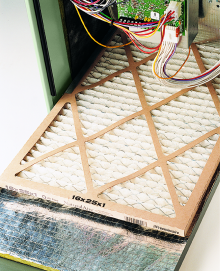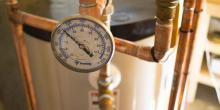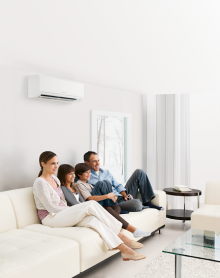CARJON Air Conditioning & Heating Blog
Award reflects company’s consistently high level of customer service
CARJON Air Conditioning and Heating, Inc. has earned the service industry’s coveted Angie’s List Super Service Award, reflecting an exemplary year of service provided to members of the local services marketplace and consumer review site in 2015.
It’s the time of year when storms start to come out of the woodwork and hit Rhode Island homeowners hard, and one of the biggest side effects of this rough weather is losing power. We tend to take power for granted, but what happens when it goes out and you’re unprepared?
It’s a scenario that far too many homeowners in Rhode Island have experienced, but the good thing is that you don’t have to if you’re careful. The solution? A backup generator. Here are just a few reasons why having one is a good idea.
The winter weather is causing many Rhode Island residents to hibernate indoors until spring arrives, which means we’re all paying much closer attention to how our heating systems are functioning. A frequently asked question from customers is in regards to dirty furnace filters. Dirty filters are an incredibly common issue that can stem from a variety of different sources. Understanding the problem comes down to pinpointing exactly why it started in the first place.
Winter has hit Rhode Island residents with full steam, and it’s not letting up anytime soon. Understandably, this has many homeowners taking a closer look at their home heating systems in an attempt to increase their home comfort for the months ahead. For those who aren’t well-versed in the finer points of home performance, understanding how the home is heated can be elusive; the confusion can often come down to the differences between boilers and furnaces.
For the next few months, the snow, ice and frigid air will have people running for the warmth of their homes. With the conditions getting colder, many people share some common beliefs as to how they can optimize their home’s heating performance and save money. What most people don’t know, however, is that some of these beliefs aren’t actually as valid as one might think. So before you turn to any of these methods, let us help you better understand these issues, you can save yourself a lot of money, energy and comfort.
The Winter season is in full swing here in Rhode Island, which has many residents preparing their homes for the chilly weather. We spend a great deal of our time indoors once the winter sets in and many people are at risk of carbon monoxide poisoning without even knowing it. CO is colorless, odorless and cannot be seen with the naked eye, making it a silent danger that can strike when you least suspect it.
If you’ve paid attention to current trends in home performance upgrades over the past few years, chances are you’ve encountered heat pumps in your travels. Heat pumps are all the rage among contractors who focus on energy efficiency, and for good reason. The benefits that heat pumps can bring to homes that are already equipped with quality air sealing and insulation are difficult to ignore, yet many Rhode Island homeowners find themselves confused about how they actually work.
At CARJON, we’re about as serious as it gets when it comes to energy efficiency and savings for our customers. We’re proud to announce that we received this year’s 2015 COOL SMART award, recognizing excellence in leadership in the energy efficiency and home performance space.
The holidays are almost here, and many Rhode Island homeowners have already finished up their shopping. While toys and the latest gadgets often top lists, the best way to make use of that holiday budget is to buy something that the whole family can enjoy for many years to come. For this season the most critical can be a new heating system, especially for those who currently find it difficult to keep their homes warm and toasty.
The holiday season is fast approaching, which has many people excited about the festivities and family gatherings that are to come. Before getting swept up in the holidays, however, it’s important to think about whether or not your home heating system is ready for the chilly months that lay ahead. By upgrading to a high-efficiency heating system like a new heat pump or a Trane furnace, you can take the stress out of your winter and ensure true comfort and savings this winter.











